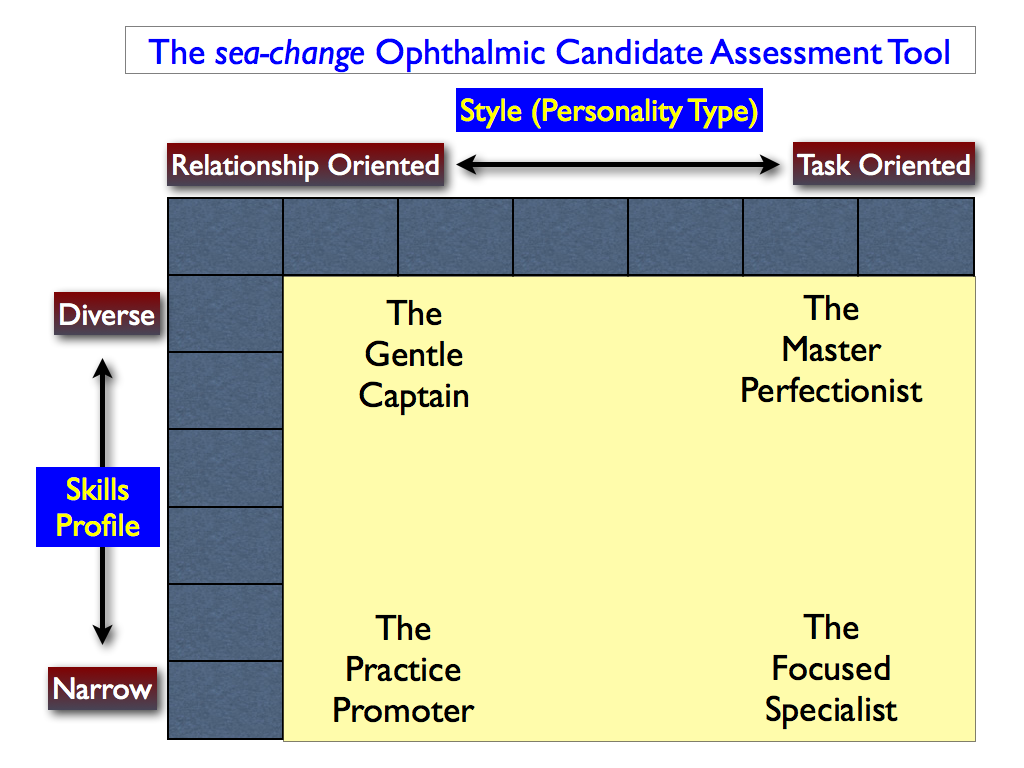A Simple Method of Describing Potential Candidates
How can you accurately describe a really good fit for your team? “When I see it, I’ll know it… but I surely cannot describe what it is”. So goes the recruiting paradox.
How do we condense the model into terms you can apply? I believe it’s fascinating and meaningful to compare skills and style (personality).
Assess skills on a continuum from diverse to narrow. Do you need a multi-dimensional specialist, a master practitioner, or a candidate limited to a single skill set?
Assess style on a continuum from task oriented to relationship oriented.
Those with task oriented styles enjoy working with things more than with people. They adopt high standards and are great with details. Their primary needs are to be right and perfect. They defend positions. Those with relationship oriented styles have great personal warmth, are verbally gifted and social settings energize them.
We developed the following diagram (adorned with typecast labels) to help you visualize how candidates compare, in an objective, robust and enlightening manner.
The Four Candidate Types
The Gentle Captain: Blessed with a combination of personal warmth and skills mastery, this charismatic champion works well with people and is gifted at a broad range of surgical and clinical duties. Her warm manner endears her to patients. Her proficiency and expertise across several sub-specialties makes her a valuable (and rare) find. Expect to pay handsomely for this candidate, but you can count on significant returns on your investment.
The Master Perfectionist: Richly talented with instruments, tools, devices and things, this master practitioner proudly pursues perfection. Moreover, does so across multiple disciplines. He’s equally tough on problems and people. His favorite words to hear are “You’re right”. He speaks his mind, often un-filtered. Tact and diplomacy are rare, unnatural characteristics.
The Focused Specialist: Unlike her Master Perfectionist cousin, the Focused Specialist is a master of a limited number of skills. Narrow in scope but adroitly expert, she excels in her sub-specialty. Expect perfectionism but not extroversion. The Focused Specialist is more comfortable in non-social situations.
The Practice Promoter: Add social talents to the Focused Specialist and you have the Practice Promoter. He will succeed clinically and surgically in his specialty. In addition, he is comfortable leaving the office and networking at Rotary and other civic events to promote the practice. This candidate is suited at handling one or two procedures you want to surrender AND at bringing in new cases.
We developed this tool for the infuriated that complain, “I have a hard time explaining what I want, but I sure as hell know what I don’t want.”

